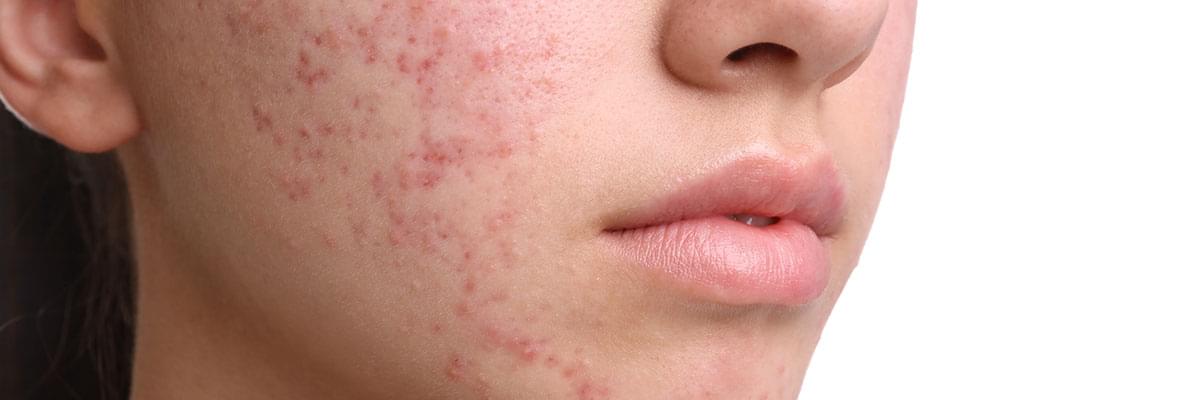
What can we do for you?
Acne is one of the most common skin conditions in the world. While it often starts during puberty, many people continue to struggle with acne-prone skin well into adulthood. Managing this condition can be frustrating and confusing, especially when products that promise clear skin don’t deliver results. The good news is that with the right knowledge, habits, and skincare routine, acne-prone skin can be managed effectively.What causes acne-prone skin
Acne develops when hair follicles become clogged with oil and dead skin cells. The skin naturally produces sebum, an oily substance that helps protect and moisturize it. However, when excess sebum mixes with dead skin and gets trapped in pores, it creates an environment where bacteria can thrive. This leads to inflammation, blackheads, whiteheads, and pimples.
Several factors contribute to acne-prone skin:
1. Hormones: Hormonal fluctuations, especially during puberty, menstruation, pregnancy, or stress, can increase oil production and trigger breakouts.
2. Genetics: If your parents had acne, you're more likely to have acne-prone skin too.
3. Skincare products: Using comedogenic (pore-clogging) products can make acne worse.
4. Diet: Some studies suggest a link between dairy or high-glycemic diets and acne, though this varies between individuals.
5. Environment: Pollution, humidity, and heavy makeup can also contribute to clogged pores and skin irritation.
Daily routine for acne-prone skin
Creating a simple, consistent skincare routine is essential for managing acne-prone skin. Here’s a gentle routine that supports clarity without over-stripping or irritating the skin:
Cleanse twice daily
Use a mild, non-comedogenic cleanser to remove dirt, oil, and bacteria in the morning and at night. Avoid scrubbing too hard or using harsh soaps, which can cause more inflammation.
Use a targeted treatment
Incorporate ingredients like salicylic acid, benzoyl peroxide, or azelaic acid. These help unclog pores, reduce bacteria, and calm inflammation. Start with a low concentration to avoid irritation.
Moisturize properly
Even acne-prone skin needs hydration. Choose a lightweight, oil-free moisturizer that supports the skin barrier and keeps it balanced.
Protect your skin with SPF
Sunscreen is crucial, especially if you're using acne treatments that can make skin more sensitive to sunlight. Choose a broad-spectrum, non-comedogenic SPF.
Avoid picking or squeezing
As tempting as it may be, picking at spots can lead to scarring and further breakouts. Let blemishes heal naturally or consult a dermatologist for safe extraction.
Lifestyle habits to support clear skin
Good skin care is just one part of managing acne-prone skin. Certain lifestyle changes can also make a big difference:
1. Clean your phone and pillowcases regularly to avoid transferring bacteria to your face.
2. Manage stress through regular exercise, sleep, and relaxation techniques. Stress hormones can trigger acne.
3. Drink plenty of water and eat a balanced diet rich in fruits, vegetables, and whole foods.
4. Avoid heavy makeup or always remove it thoroughly before bed.
5. Don’t over-wash or over-treat your skin, as this can strip the barrier and cause more oil production.
When to see a dermatologist
If your acne is persistent, painful, or leaves scars, it’s time to consult a professional. Dermatologists can prescribe topical or oral treatments that are stronger than over-the-counter options. These may include retinoids, antibiotics, hormonal treatments, or isotretinoin in severe cases.
Everyone’s skin is different, so what works for one person might not work for another. A dermatologist can help you identify the root causes of your acne and build a plan that’s right for your skin type and lifestyle.
The bottom line
Managing acne-prone skin takes patience, consistency, and a bit of trial and error. With the right skincare routine, mindful lifestyle choices, and professional support when needed, clearer skin is achievable. Focus on treating your skin gently and listening to what it needs. Over time, your skin will thank you.
Back to Articles






















